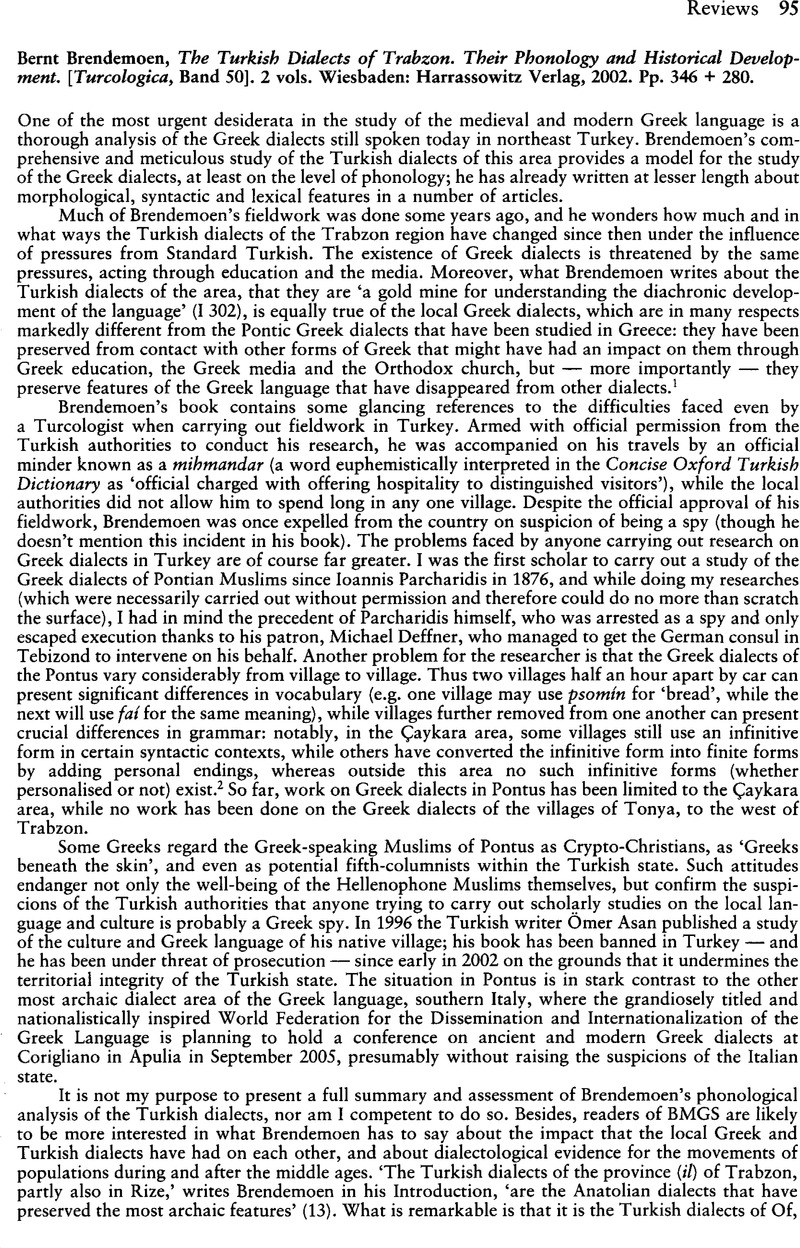No CrossRef data available.
Published online by Cambridge University Press: 26 April 2016

1 For example, the dialects of Of-Çaykara and Sūrmene are the only modern Greek dialects to preserve the ancient negative particle 0ὑ.
2 These infinitive (and pseudo-infinitive) forms are used not only after the past tense of the verb éxo “I have” in hypothetical (not pluperfect) expressions, but also after negative past-tense forms of thélo “I want” and porό “I can”, and after prin “before” (cf. English “before coming”). These infintive and psuedo-infinitive forms are rarely found in any records of Pontic dialects outside the Of-Caykara area.